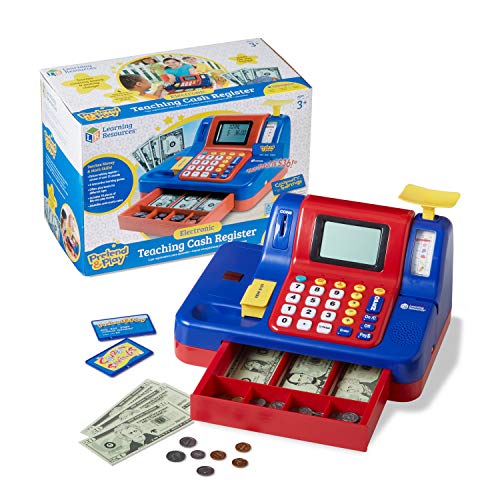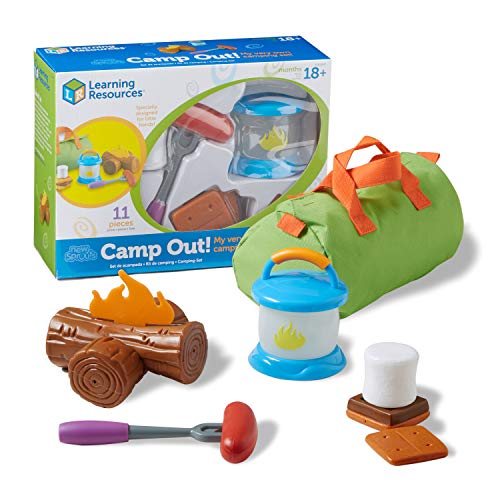
Affiliate Disclosure: The Smart Parenting Guide is reader-supported. When you buy through links on our site, we get commissions from qualifying purchases.
The definition of pretend play
Pretend play is a form of playful activity characterized by as-if behavior. The four main criteria of pretend play are non-literality, flexibility, positive effect, and intrinsic motivation. Thus, pretend play, performed in exaggerated symbolic form, brings joy and fun to people who engage in unusual behavior but retain the connection with reality.
Why do children pretend?
Little children between 1 and 2 years old engage in pretend play to explore the properties and functions of objects by imitating activities of their caregivers. In older kids, simple pretend play transforms into symbolic play, which helps children to process reality. Pretend play allows children to understand and express their emotions, view the situation from several standpoints, react to the situation in many different ways, understand human relationships.
Why is pretend play important?
For many years, researchers, educators, and pediatricians claimed that preted play is crucial for a child's cognitive, emotional, social development, language skills, and self-regulation.
Vygotsky, one of the most known developmental theorists, promoted the idea that "the play takes a child to the upper end of his or her "zone of proximal development ". According to Vygotsky's theory, pretend play develops abstract thinking and inhibitory control of their behavior.
In contrast, Piaget thought that pretend play is more a byproduct of other abilities. When skills like language or imitation develop, they enable a child to play more effectively. According to Piaget, pretend play has no direct impact on the child's behavior. Thus, pretend play serves more like an indicator of the proper child's development.
In 2013, researchers did a critical review of existing that time data about pretend play. They reviewed the impact of pretend play on creativity, intelligence, problem-solving, reasoning, conservation, theory of mind, social skills, language, narrative, skills, executive function, and emotional regulation. They found that all current studies had controversial results. In that review, researchers concluded that rich and mature pretend play most probably was not the reason for the development of named above skills.
Available data instead indicated that mature pretend play was a byproduct of the skill development, thus supporting the Piaget's theory. In 2016 study researchers found that engaging in fantastical pretend play is one of the ways that enhance the development of executive function in preschoolers.
What does a child learn in dramatic play?
The above findings don't mean that children don't need pretend play. In more recent studies, researchers found that dramatic play does improve emotional self-control in kids. Also, research revealed that pretend play games are especially beneficial for children from low-income backgrounds. (For more info watch this video).
Up to now, the exact relations between pretend play and other skills are unclear. There are contradicting results about the direct influence of pretend play on theory of mind, emotional and social cognition, reasoning skills. Nevertheless, researchers did find strong correlations between the ability to pretend play and the named above skills.
Moreover, 5-year-olds who play pretend games more often, have well-developed abstract thinking, which is a predisposition to further strong understanding of math, reading, and writing in school. But again, the evidence is lacking on the facilitation of abstract thinking by pretend play. So far, it is more likely that children with developed abstract thinking and symbolic function tend to pretend play more and thus engage in higher levels of pretense.
Now you probably think: "does my child need the pretend play? ".
The answer is simple: yes, absolutely.
Even when the causality of pretend play and its influence on skill development is unclear, children have been playing pretend games for ages for a good reason. Pretend play improves the emotional state of a child, his self-regulation, helps to play out stressful situations, improves language, especially when played with an adult. And most importantly, pretend games help the child to cope with reality and get relief from stressful situations.
Pretend play gives you a unique opportunity to connect with your child and create emotional bonds. Through play, you may find out what bothers your child, what he thinks about himself and others, what his emotional state is at the moment. You do not have to play with your child all day long; it is even not recommended because children need to explore free play and become independent in it. But to secure your emotional ties with your child, it is a good idea to play games of your child's choice for 15 minutes every day.
More about the importance of play watch in this outstanding TED lecture
What is pretend play in toddlers? What age do toddlers start pretend play?
The earlier you teach your child to play, the more time you get for other things. Play is a real sanity-saver for parents when taught right. You may start teaching your child to play with toys from around 18 months when the first signs of pretend play appear. According to Vygotskian theory, a child first learns how to play from an adult. Then he teaches to play someone else (e.g., his toy, younger sibling, pet). And only then he starts playing independently.
The first simple pretend play usually starts with the object substitution, the social content develops later, around the third year of age. At this age, most children begin developing the real dramatic pretend play.
Initially, toddler play involves actions with themselves or others, like feeding someone and a lot of manipulations with objects. For this reason, toddlers enjoy Montessori schools very much. The setting of these schools resonates with the natural child's desire to engage in various object manipulations and repeat adult actions they watch every day.
Thus, the best pretend play for toddlers would be to help caregivers with chores, self-care, cooking, etc. But sometimes you can't include the little one into your everyday tasks. Then teach your child to engage in pretend play with 9 simple steps described below.
How do I teach my child to pretend play?
- You may start introducing these simple steps at 15-18 months of age. Let's take the toy kitchen as an example. When playing with a toy kitchen, show your toddler how to cook soup. Do not describe it, as at this age, children learn best from visual demonstrations. Simply explain that now you are going to cook soup. Then show that you take a pan, add water, heat it, put these and that vegetables, etc.
- Discuss with your child what else you can add to the soup, show him options. With little kids, it is better to follow one play scenario for several days, adding new elements one by one. For example, yesterday you made soup, today you can make soup and pasta. But stay focus on the same kitchen play.
- Do this in the morning or when you and your child are in the best mood.
- In the afternoon, offer the toddler to play this game again, but do not be involved too much. This time you may only guide him with words to support the interest.
- If you want your toddler to engage and focus on some pretend play, eliminate all other distractions around. Preschool children, and especially toddlers, do not require tons of toys to play. The opposite is true. The fewer toys you have, the more your toddler will engage with them. So when playing with the toy kitchen, hide all other distracting toys, like dolls, cars, plush toys, etc.
- Depending on a toddler, the play with a toy kitchen might last for a week or so, but try adding some new aspects in his play every day, so he doesn't get bored and learns various play options.
- For another week, you may choose another topic, like playing with vehicles or dolls. Just always follow the above simple rules when teaching your toddler to play.
- In a few weeks, repeat the play scenario from week one and watch what your child remembers about this particular play. Later you may show him how to mix two play scenarios, like caring for a baby doll and cooking soup for her.
- Thus, step by step, you will improve your child's conceptual field and teach him to focus on the particular play scenario. With time you will see that his ability to stay concentrated on the specific play gets longer.
By the age of three, your child might be able to play independently for dozens of minutes, sometimes even an hour or more. Independent play is fantastic training for a child's emotional-volitional sphere and self-control.
Learn more about the best toys for toddlers here.
Do not get upset when you notice that at the age of 3 your child starts again to ask you to play with him all the time. Around this age, children begin their way to peer play, and they need someone to play with and socialize. A strong need for peers might be problematic if you have only one child who doesn't have any siblings to engage with. Usually, at the age of three, children start a preschool, which is beneficial for their social skills and emotional development.
Why is role play important for preschoolers?
In 3-4-year-olds, the pretend play participates in the development of voluntary attention and focus. These skills are essential for later successful learning in school. At this age, pretend play is an excellent opportunity to teach your child self-control and leadership skills. You shouldn't play with the preschooler all the time, but it would be great if you could find some time to play with your kid every day. There are several reasons for that:
- Without an adult child's play will last much shorter
- A preschooler learns new vocabulary and play ideas from the adult
- A child learns how to lead the game and other people. Here the most important condition is to stay engaged but let your child lead the play, assign roles, and remain in these roles till the end. Of course, you may suggest some ideas on how to enrich the play, but your child is always the one who makes the final decision.
- When the child completes the play scenario, he feels successful, which motivates him to achieve his goals in general and positively reinforces further play. In the toy kitchen example, your child feels the need to cook something for you. Then he feels the inner motivation to do so, takes action (prepares a dish) and reaches his goal (feeds you, and receives emotional response), gets the feeling of completion and success.
- One more important reason to play with your preschooler is to help him cope with distraction, disappointment, and lack of focus. Sometimes children in the middle of play don't want to continue, get angry, or want to change the scenario. They may want you to leave the game. This situation is an excellent opportunity to teach your child persistence.
If a preschooler starts yelling, gets angry, and wants to end the game, do not let him do this until he reaches some logical ending. For example, if your kid in the middle of play wants to stop cooking a dish for you and to leave the scenario, tell him that you are still hungry and really would like to eat something. You may suggest to provide you with some toy snack instead of a dish, "freeze" the food for next time or help him finish cooking. This strategy is excellent to promote your child's self-control and still provide him with the feeling of the successfully completed task.
How does playing with dolls help a child's development?
Doll play is very important for both girls and boys; it has an enormous impact on the further development of their parenting skills. Girls need to go through the stage of caring for the baby to boost their maternal instincts. Of course, many other things impact the maternal sphere of a future woman. Among them are relationships with her own mother, her father, caring for younger children, etc. But in the doll play, girls get self-confidence and start feeling the internal motivation have a baby one day.
If the maternal sphere develops appropriately for this age, when the young women give birth to a real baby, she doesn't feel that overwhelmed with her new role. She accepts all the difficulties and feels more confident with her newborn. Moreover, boys also need to play with dolls from time to time to get the confidence and inner motivation of having a family one day. When they later become dads, they understand what the newborn needs and also feel more self-reliant and mature with their little one.
Doll play ideas
You may start teaching your 18 months old to play with a baby using the nine simple steps described above. Doll play is especially beneficial if you have another baby to come soon. By teaching your toddler to care for his baby, you may prepare him for all the significant changes that soon will occur in your family.
For example, if you are pregnant, start telling your child that babies can't speak yet, and they communicate with their mom through a scream. Cry this baby's language to say to the world what they need. Then you can play out this scenario using a baby doll and show the child how to care for the baby, how to calm her down, change a diaper, feed her, etc.
Or you can create a routine schedule for the toddler that you'll be doing at home when the baby arrives. And play it out with dollies as well. Going through such a plan relaxes the anxiety that your child might get from the new family situation.
Pretend play ideas: resources for imaginative play
Play ideas depend on the age of your child. With toddlers, all pretend play games that imitate their real life are a great option. For 3-4-year-olds, play through situations they see in real life, like a birthday party for dollies or treating a dogie in a vet clinic. But also use stories from their favorite books. Even better if your preschooler comes up with an alternative ending for this story. You may help him to create a new story with familiar characters, like Thomas and friends, paw patrol, etc. Also, it is great to introduce new information to a child in the form of play. For example, if you want to familiarize the child about pirates or dinosaurs, the best way would be to show hem a book and immediately play out some scenes from it.
23 toy ideas to support and enrich pretend play:
4. Café Cart
5. Toy food
6. Baby dolls








![Disney Princess Dress Up Trunk Deluxe 21 Piece Officially Licensed [Amazon Exclusive]](https://m.media-amazon.com/images/I/51V47QiXWgL._SL500_.jpg)



![Learning Resources Pretend & Play School Set, 149 Pieces, Ages 3+ [Standard Packaging]](https://m.media-amazon.com/images/I/51Cjdh6JzgL._SL500_.jpg)










